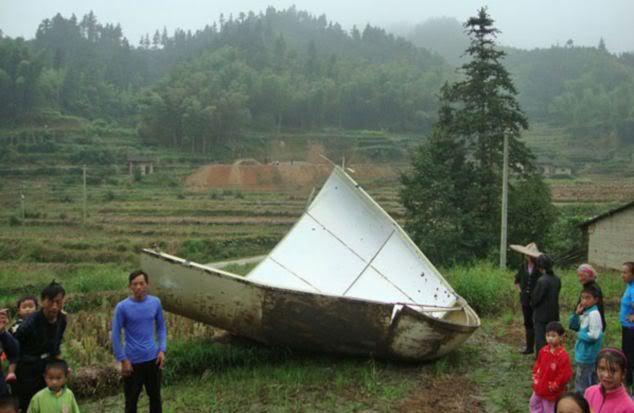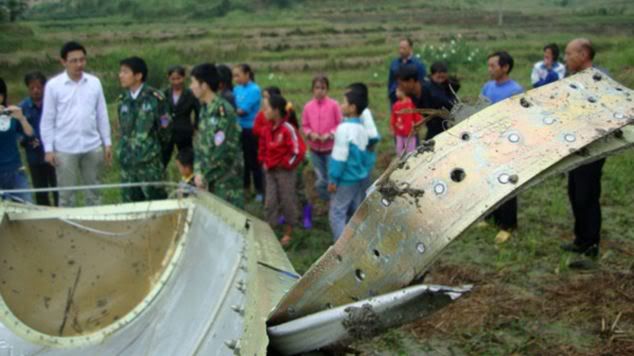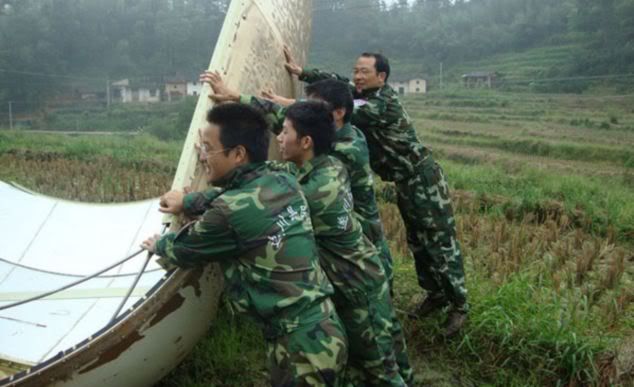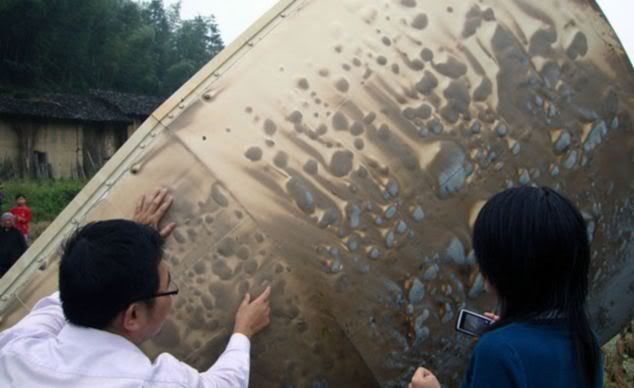But they awoke the next morning to see their village in Suichuan County in Jiangxi dotted with huge pieces of metal.
These images show the scene in their rural village after the rocket from China's second lunar mission crashed to Earth, narrowly missing crushing their homes.
Huge chunks of metal rained out of the sky after the lunar probe Chang'e II jettisoned its Long March 3C rocket on Friday night.
No one is believed to have been hurt in the incident.
China launched an unmanned lunar probe on Friday, the latest milestone for an ambitious space programme that aims to put a man on the moon later this decade.


The probe was shot into space aboard a rocket from the launch site in southwestern China's Sichuan province, according to footage aired by state broadcaster China Central Television.
The probe plans to test technology in preparation for an unmanned moon landing in 2012, with a possible manned lunar mission to follow in 2017.
China's other space plans include the launch of the first module of a future space station next year followed by the dispatch of manned spacecraft to dock with it.
China launched its first manned flight in 2003, joining Russia and the United States as the only countries to put humans into orbit. Two additional manned missions followed, most recently in 2008 featuring the program's first-ever space walk.
The Xinhua News Agency said Chang'e II would circle 62 miles above the moon before moving into an elliptical orbit just nine miles above its surface.
It will film the anticipated landing site for the Chang'e III probe with its super-high resolution camera before returning to its higher orbit and carrying out an analysis of the lunar surface and surrounding space environment.
China's other space plans include the launch of the first module of a future space station next year followed by the dispatch of manned spacecraft to dock with it.
The Chinese space programme is marking new milestones even as those in the U.S. and elsewhere face tight budgets, although its close links to the military have limited cooperation with other nations - including the International Space Station.




















